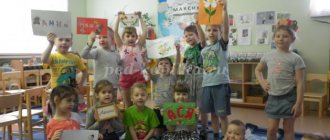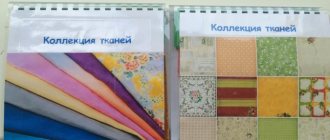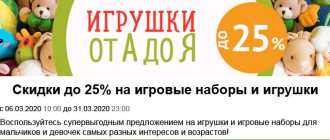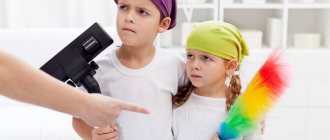Class hour "Day of Knowledge"
Compiled by:
Smirnova N.E.
Day of Knowledge
Dear guys, I congratulate you on the first day of school, on Knowledge Day! I wish you new discoveries, new successes, new knowledge. Good mood to you! The summer holidays are over and the school bell has rung.
We have to study for 9 whole months, communicate with each other in lessons and extracurricular activities, and this is 1085 academic hours, 210 academic days.
This list can be continued, but we will now try to answer the question: “Who do you want to be close to for so long: with a school friend or with a person who will never come to the rescue, will not ask: “How are you?”, will not give you any advice. lesson, won’t he talk to you at recess?” Of course, the answer is clear - with a friend.
Look around, there are 12 of us. And everyone wants to have a friend. There is no such person who could live his whole life alone. We are lucky: each of us can have 12 friends in our class. And that's great!
- To begin with, let’s compile our common newspaper of memories “This is what our summer is like!”
- Today the school has gathered us, we are in our office surrounded by our classmates. Now we will find out something and find out hidden details about each of those present. And your activity and applause will help us with this. The one who applauds... (students applaud)
- glad to meet friends;
- I didn’t miss school at all;
- went to school happily;
- I read everything that was assigned for the summer;
- I was determined to graduate from school with “4” and “5”;
- will graduate from school with a medal;
- does not want to leave school;
- have already decided on their future profession;
- is already looking forward to the next holidays;
- wants to sleep and can’t think about anything else yet;
- met my favorite teacher today;
- got up on the wrong foot;
- I'm already afraid of the upcoming exams...
Each of you must fill in the chamomile petals, from which we will make a summer lawn.
- In our class, the most independent person is... I was often pleasantly surprised... Life is a difficult thing, but, in my opinion, he will never get lost in it... A bully will be very unlucky if he meets on his way... The most gifted person in our class is... Better knows how to listen, understand and support everyone in the class... If the class is boring, it means there is something missing... It’s interesting for me to watch how people answer at the board... Perhaps we will very soon see excellent students... Most often I will dream... Resourcefulness is inherent... Decoration disco is... The kindest person in the class can be called... In politics, it is advisable to recommend... Generosity knows no bounds in... Modesty always adorns... Class is more fun when it comes... The most charming smile in...... Will always come to the rescue at any time of the day and nights...
It is unlikely that any of you will claim that you know for sure how your future life or at least the near future will turn out. The future is unknown to anyone. We can only guess how and what will happen to us in the near future.
Or you can try to look into the future by turning to predictors. But in our time, any fortune teller values her work very highly, and we can’t afford it. I offer a completely free and almost error-free method of fortune telling.
Write on the 1st strip the name of the educational institution you are trying to enroll in (after writing, we give the strips to the teacher)
2) – what profession would you like to get;
3) – what city would you like to live in;
4) – what would you like to give to your closest person;
5) – name a country you know a lot about;
6) - name a classmate whom you will remember more often than others;
7) – a place where you consider it possible to have a heart-to-heart conversation;
– a dish or drink that you would like to try.
On the table in front of the audience I lay out 8 piles with written stripes.
Students take turns going out and pulling strips, making up a comic story of their future life from the notes they pulled out:
Month of “Legal education of preschool children in preschool educational institutions”
Compiled by: educational psychologist Ilgova S.N.
The purpose of the work: to contribute to the development of a more perfect person in moral terms through the formation of basic legal knowledge.
Achieving this goal goes in three directions:
- ensuring legal literacy of employees;
- increasing the level of legal and pedagogical knowledge of parents;
- legal education of children.
Tasks in working with employees:
- study the legal documents regulating and establishing the rights of the child;
- develop a system of work of preschool educational institutions for the legal education of children;
- ensure the observance and protection of the rights of the child in kindergarten;
- equip teachers with knowledge on legal education of parents and monitoring violations of children’s rights in the family.
Tasks for working with parents:
- introduce the contents of the articles of the Convention on the Rights of the Child and other legal documents guaranteeing the rights of the child;
- help recognize the rights of the child;
- involve parents in the work to respect and protect the rights of the child;
- increase the responsibility of parents for the upbringing and education of their child.
Tasks for working with children:
- introduce children in an age-appropriate manner to the basic documents on the protection of human rights;
- promote the formation of self-esteem, awareness of one’s rights, a sense of responsibility (for another person, for a business started, for a given word, etc.);
- develop respect for the dignity and personal rights of another person;
- explain social norms and rules of conduct.
Expected Result:
- The development of the following moral qualities in children:
- Tolerance, responsiveness, respect for other people, as well as skills: to come to the aid of another person, to resist a negative example in behavior, to resolve conflicts in modern life by legal means.
Project stages:
- Preparatory stage.
- Activity stage.
- The final stage.
- Stage 1 - preparatory
- Studying literature.
- Diagnostics of children.
- Parent survey.
- Questioning of teachers.
- Selection of material on legal education.
Main tasks in working with parents:
- acquaint parents with legal documents, basic rights and responsibilities of the family itself;
- increase the level of legal culture of parents and their competence in raising children;
- to instill in parents responsibility for maintaining the health, education and development of their child;
- rebuild the initial view of the child, help to understand and accept that the child is an equal person who has the right to his own actions and opinions;
- create a special form of communication between parents and educators: “Trusted business contact”
- 2nd stage. Activity stage .
| No. | Event | Time spending | Location | Responsible |
| Working with students | ||||
| 1 | Legal education lesson “Every child has the right...” | In a week | Senior groups | Group teachers |
| 2 | Legal education lesson “Very Important Rights” | In a week | Preparatory groups | Group teachers |
| 3 | Reviewing illustrations and presentations about rights. | In a week | All age groups | Group teachers |
| 4 | Conversations with children: “What are children’s rights” “How to be friends without quarreling” “Everyone has a name” “Life is given for good deeds” “How people came to the conclusion that rights must be protected” (J. “Read, learn, play ”No. 3/2002 page 17) | Constantly within the project | All age groups | Group teachers |
| 5 | Legal education lesson “I am the most, the most!” (the right to preserve one’s individuality) | In a week | Middle groups | Group teachers |
| 6 | Games and problem situations for preschoolers: “What is good and what is bad” “We didn’t share a toy” “A friend is next to you” “Forbidden - allowed” “We are different, but we have equal rights” “I am like you, but I am different” ""Hands get to know each other, hands quarrel, hands make up""Tsvetik-seventsvetik" "What would happen if..." | Constantly within the project | All age groups | Group teachers |
| 7 | Reading literary works on the topic and discussion: the fairy tales of H. H. Andersen “Wild Swans”; excerpts from the fairy tale by K.I. Chukovsky “Doctor Aibolit. Journey to the Land of Monkeys”, etc. | Constantly within the project | All age groups | Group teachers |
| 8 | Acquaintance with proverbs and sayings reflecting law and education. Sketch of some sayings (proverbs) | Constantly within the project | Middle, senior, preparatory groups | Group teachers |
| 9 | Design of the exhibition of drawings: “Me and my rights” | In a week | MBDOU No. 107 | Group teachers. Head of VMR |
| 10 | Watch films and cartoons on the topic of the week. | Constantly within the project | Middle, senior, preparatory groups | Group teachers |
| 11 | Didactic games: “I have the right...” “I shouldn’t...” “Make an emblem of the right.” | Constantly within the project | Middle, senior, preparatory groups | Group teachers |
| 12 | Role-playing games: “Hike”, “Journey”, “Family” and other games. | Constantly within the project | Middle, senior, preparatory groups | Group teachers |
| 13 | Theatrical games, dramatization games: | Constantly within the project | Middle, senior, preparatory groups | Group teachers |
| 14 | Diagnostic technique of E. V. Solovyova (preparatory group) in order to identify the level of legal culture of preschool children | At stage 1 | Preparatory groups | Group teachers, educational psychologist |
| 15 | Studying the family atmosphere (sociometry of interpersonal relationships in the family) | At stage 1 | Senior and preparatory groups | Group teachers, educational psychologist |
| 16 | Project “Learning about our rights” | During the 2017/2018 academic year | MBDOU No. 107 | Group teachers, senior teacher, educational psychologist |
| Working with parents | ||||
| 17 | Distribution of thematic booklets on children's rights, promotion of responsible parenting, prevention of family violence, child abuse, etc. | Within a month | MBDOU No. 107 | Group teachers |
| 18 | Design of an information stand and website page on legal education of parents (regulatory documents (extracts from the Constitution of the Russian Federation, the UN Convention on the Rights of the Child, the Family Code of the Russian Federation, the Law on Education, etc.), contact numbers of services for the protection of the rights of minors are indicated) | Within a month | MBDOU No. 107 | Group teachersTeacher-psychologist |
| 19 | Design of a group thematic stand for parents “With kindness to the child.” | Within a month | MBDOU No. 107 | Group teachers |
| 20 | Preparation of instructions for parents: “When punishing, think: why?” “The art of being a parent” “Four commandments of a wise parent” “Protecting the rights and dignity of the child in legislative acts” | Within a month | MBDOU No. 107 | Group teachersTeacher-psychologist |
| 21 | Consulting citizens on issues of guardianship and trusteeship, adoption, child-parent relations | Within a month | MBDOU No. 107 | Group teachersHead |
| 22 | General parent meeting “Our children were born to live joyfully! Protecting the rights and dignity of a small child." | Within a month | MBDOU No. 107 | Administration, educational psychologist |
| 23 | Questioning parents on legal education : “What kind of parents are you?” "Punishments and attitudes towards them" | At stage 1 | MBDOU No. 107 | Group teachers, educational psychologist |
| Working with teachers | ||||
| 24 | Exhibition of literature on legal education of preschool children | Within a month | MBDOU No. 107 | Senior teacher |
| 25 | Consultation for educators “Legal education of preschool children” | Within a month | MBDOU No. 107 | Senior teacher |
| 26 | Questionnaire “Style of pedagogical communication” | Within a month | MBDOU No. 107 | Educational psychologist |
| 27 | Business game. Reference pedagogical bureau “Protection of rights and legal education Presentation for teachers on the legal education of preschool children” Questionnaire for educators “Knowledge of regulatory documents on the protection and protection of children’s rights” | Within a month | MBDOU No. 107 | Senior teacher, educational psychologist |
| 28 | Memos for educators “Signs of abuse and violence” “Protecting the rights and dignity of the child in legislative acts” “Studying family law” “Rules for educators” | Within a month | MBDOU No. 107 | Senior teacher, educational psychologist |
| 29 | Update the list of families of children at risk | September October | MBDOU No. 107 | Senior teacher, educational psychologist, group teachers |
Stage 3 – final.
- Diagnostics of children;
- Analysis of the work performed;
- Processing and design of project materials.
Older preschoolers watched the following cartoons:
Children's rights: didactic games
Goal: to give kids a reason to think about the fact that not all children have parents.
Tasks:
- Teach to see social injustice in situations with fairy-tale characters, make suggestions for improving or correcting the situation.
- Reinforce the concept of “orphan”.
- Develop a sense of empathy for children who do not have parents.
Material: illustrations of fairy tales “The Three Little Pigs”, “Cinderella”, “Wild Swans”, “Snow White” and others.
Rules of the game: players must explain to children about rights, what rights of children have been violated.
Progress of the game:
Option 1.
2 or more children can play the game.
An adult reads an excerpt from a fairy tale, and child players name the fairy tale, find the corresponding illustration and explain to other children about their rights, which children’s rights have been violated.
The game ends when all the pictures have been examined and explained.
Didactic game “Let every child know that he has different rights”
Goal: to consolidate children’s knowledge about the rights to love and care, rest and leisure, nutritious nutrition, education and medical care.
Material: cube with illustrations of images of children's rights.
Rules of the game: players must explain the rights of the child that are shown in the picture.
Progress of the game:
Children stand in a circle. At the teacher’s signal, the children begin to pass the cube into each other’s hands.
When the signal sounds, the child who receives the cube looks at his picture and talks about the child’s right that is depicted on it.
The game continues until all illustrations have been reviewed.
Didactic game “Fold the flower”
Goal: to consolidate children’s knowledge about the great rights of a small child. Teach children to understand their capabilities when following certain rules and rights.
Foster a negative attitude towards manifestations of aggression, cruelty, and exploitation. Cultivate a desire to try to be fair.
Material: red and green circles depicting children’s faces, multi-colored petals on which are pasted pictures depicting the child’s rights to a good life or violation of them.
Rules of the game: players must place petals around the green circle, on which are pasted pictures depicting the rights of a child to a decent life, and around the red circle, place petals depicting a violation of the child’s right.
Progress of the game:
Two or more children can take part in the game.
Option 1.
2 circles (green and red) are placed in the middle of the table, and the petals are laid out on the table with an image facing the table.
Children take turns choosing a petal, examining it, and explaining whether the child’s right is being protected or violated.
If the petal depicts a picture protecting the rights of a child, it is placed around a green circle, and if the child’s rights are violated, then it is placed around a red circle.
The game ends when both flowers are completed.
Option 2.
Two children are playing. One child is asked to fold a flower, on the petals of which there are pictures depicting the protection of children’s rights, the second child – with images of violations of children’s rights.
The first player to make a flower wins.
Didactic game “Chain of rights of the child”
Goal: to consolidate children’s knowledge about the rights of a small child. Improve reading skills. Develop fine motor skills of the hands. Cultivate attention and visual perception.
Material: parts of the “chain”: on some there is a graphic representation of the rights of the child, on others there is a verbal explanation of the graphic images.
Rules of the game: after a verbal explanation of the rights of the child, kids select pictures with graphic images, explaining their content, forming a chain. And vice versa.
Progress of the game:
1 option
The teacher or child reads out a verbal explanation of the child's rights on one part of the chain. Children find the corresponding graphic image, connect it with a cord, and talk about the child’s right that is depicted on it.
Option 2:
Children select for themselves parts with a graphic depiction of the rights of the child and, with the help of the teacher, or independently find the appropriate verbal explanation. And they are connected with a cord.
The one who connects the chain faster wins.
Didactic game “We are future first-graders”
Goal: to achieve awareness of one’s own status and place in society for older children in kindergarten.
Bring children to the conclusion that they are older students in kindergarten.
To develop the ability to motivate one’s attitude towards the role of a future student.
Learn to list those actions that you have mastered well, and adequately evaluate your skills.
Material: six drawings depicting various types of motivation for a future student; six envelopes with a short story in which each of the motives appears as the personal position of one of the characters; cube with circles from 1 to 6.
Rules of the game: The player must explain his point of view of the image in the picture.
Progress of the game:
From 2 to 6 children can take part in the game.
Before the game starts, pictures depicting various types of motivation for the future student and six envelopes with short stories are laid out on the table.
Using a counting rhyme, they determine which child will start the game first.
The child throws a cube with circles and names a number that corresponds to the number of circles on the cube, then finds an envelope with the same number.
The adult takes the story out of the envelope and reads it, and a card with the same number is placed in front of the player. The child examines it and explains his point of view to other children about rights.
When all the card drawings have been reviewed, the game ends.
The winner is the player who correctly and thoroughly explains his point of view.




